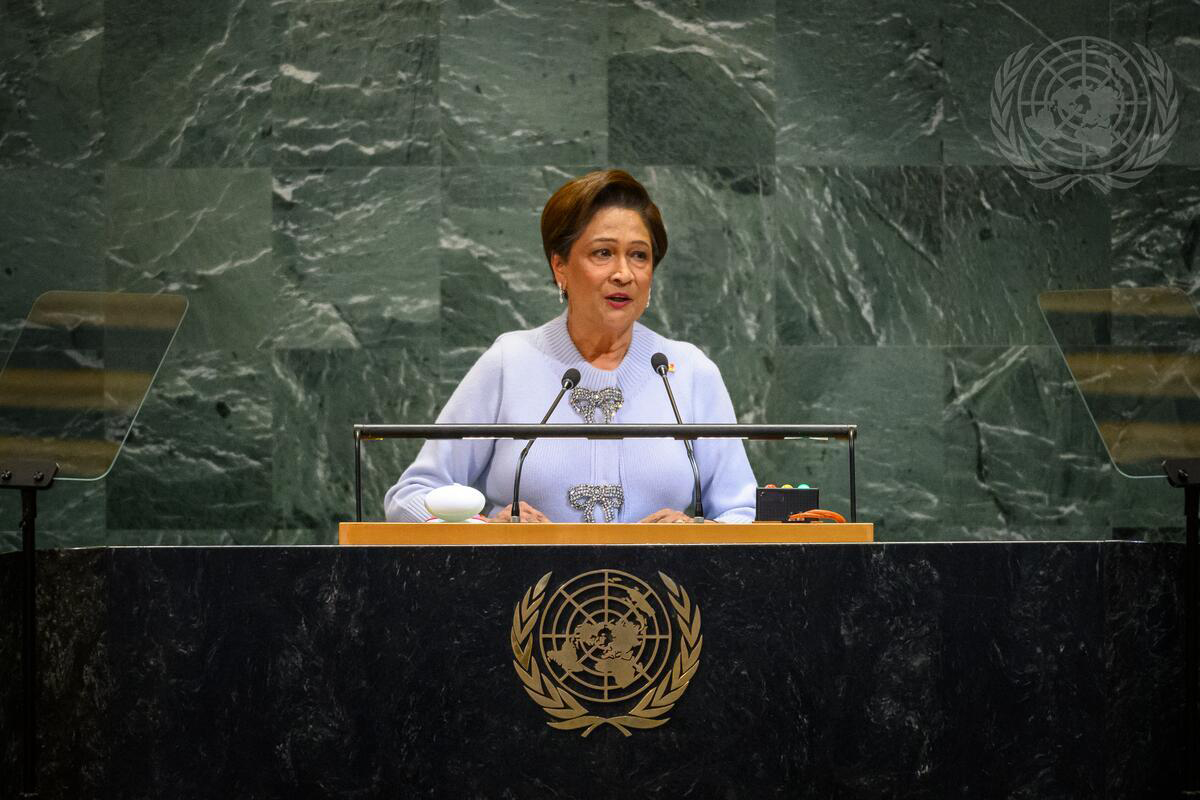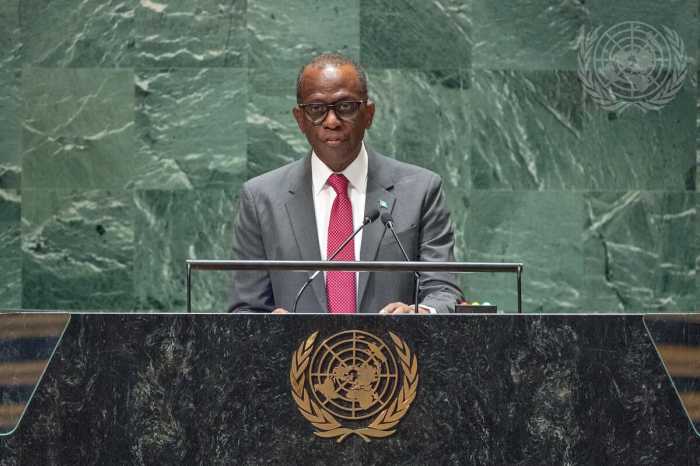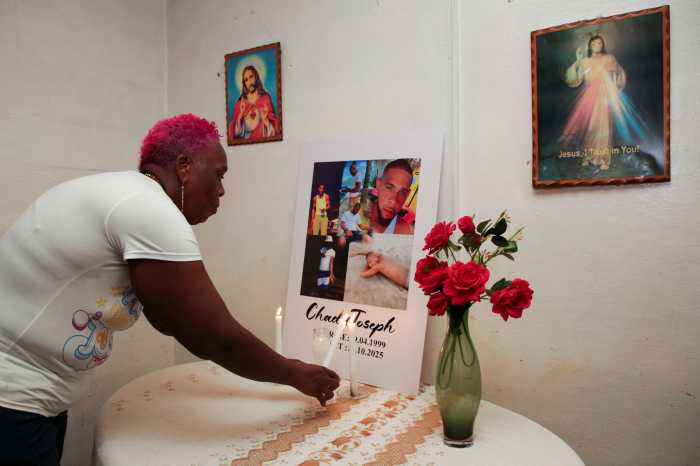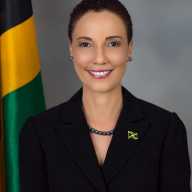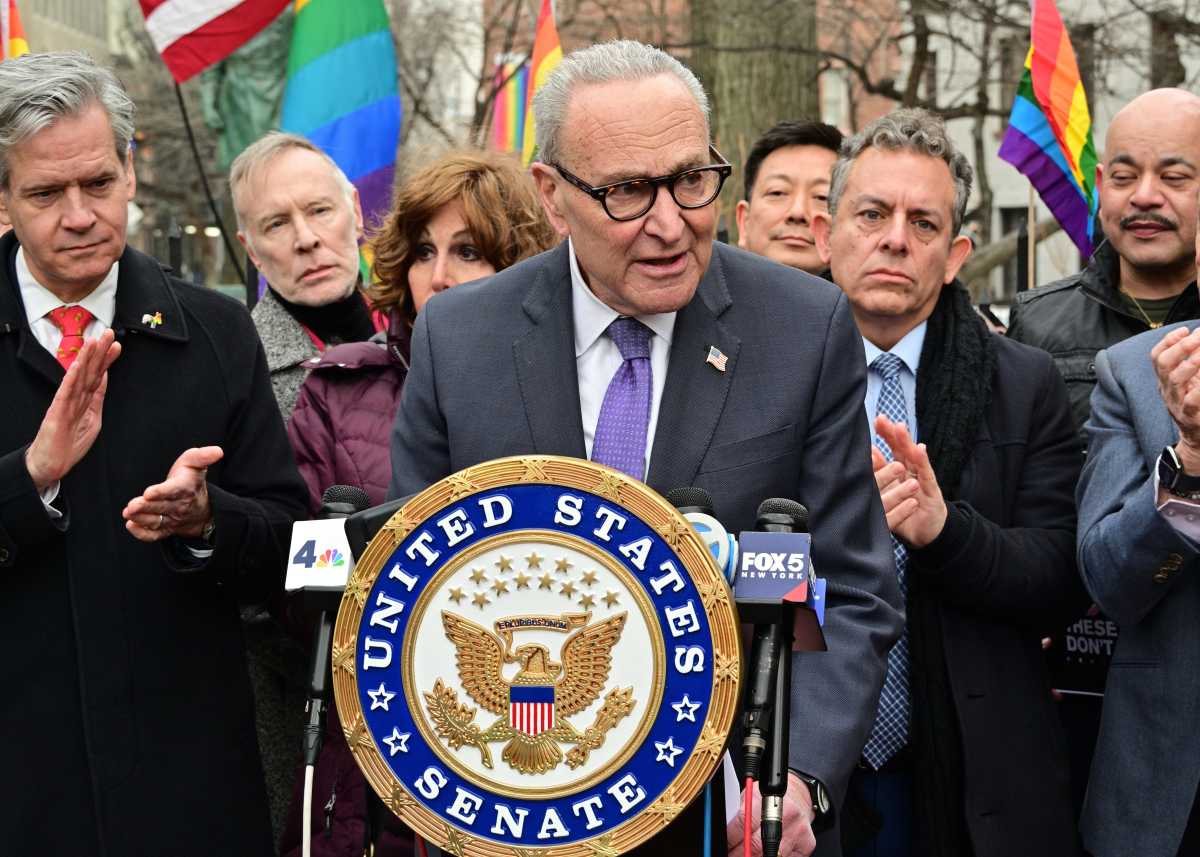There were instances of panic buying and early family pick-ups of children from schools in Trinidad on Friday after authorities ordered a full mobilization of the military in the wake of deteriorating relations between the federation and Venezuela and fears that the US will soon take military action against Trinidad’s closest neighbor. Some businesses also closed early.
“Be calm. There is nothing to fear at this time,” said Prime Minister Kamla Persad Bissessar as she sought to calm jittery nerves among national constituents. “We have been receiving intelligence reports, and thus far, I have none that there is an imminent strike anywhere in the region. If and when that happens, I will share it with you as soon as it comes to me,” she said.
Saying it was acting out of an abundance of caution, the police administration announced that it was also canceling current leave applications for officers proceeding on vacation, given the level of uncertainty in the country, with the US suggesting it will take some form of military action against Venezuela.
As the umbrella supermarket association discouraged panic buying while stating that adequate stocks are in warehouses, the coastguard stepped up patrols and monitoring of the island’s southwestern coast, fearing that a similar state of jitters in Venezuelan border areas could trigger mass migration across the seven-mile stretch of water. Trinidad is home to about 50,000 Venezuelan migrants. Authorities recently announced plans to mass-deport more than 200 people who have run afoul of local laws.
The federation with Tobago’s government has openly thrown its support behind the US, saying international narco, weapons smuggling, and human trafficking are primarily to blame for the spike in murder and other serious crimes in the country. Murders have averaged nearly 600 in recent years.
As officials tried to calm nerves, parliament also approved the latest three-month extension of state of emergency measures, first implemented by the previous administration at the end of last year.
Officials hailed the measures a fair success, saying murders and violent felony crimes are down, so they want to continue cashing in on the success of the extraordinary measures handed to police and other law enforcers.
Meanwhile, local T&T media reported on Friday that there was clear evidence of electronic jamming of radar and GPS systems across the Gulf in northern Venezuela, noting that this had spread to parts of Trinidad, disrupting navigation and other systems. For many, this is a further sign of a slow escalation of hostilities between the US and Venezuela, with Trinidad without.
At least two international electronic monitoring sites commented on the jamming, stating that this was unusual for Trinidad but not surprising for Venezuela, given the current state of military tensions in the Southern Caribbean. Local experts say it was also possible that the jamming could have been attributed to environmental factors, but few believed this could be an explanation for such activities at this time.
On orders from the White House and the Defense Department, the US military has killed more than 50 crew members of vessels allegedly fetching drugs to Trinidad or to other points, presumably for onward transmission to the US mainland.


